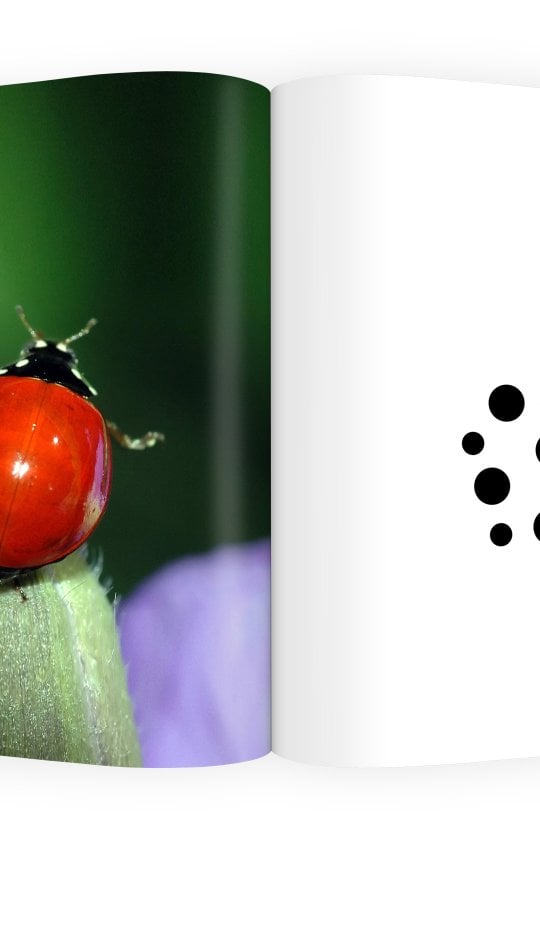
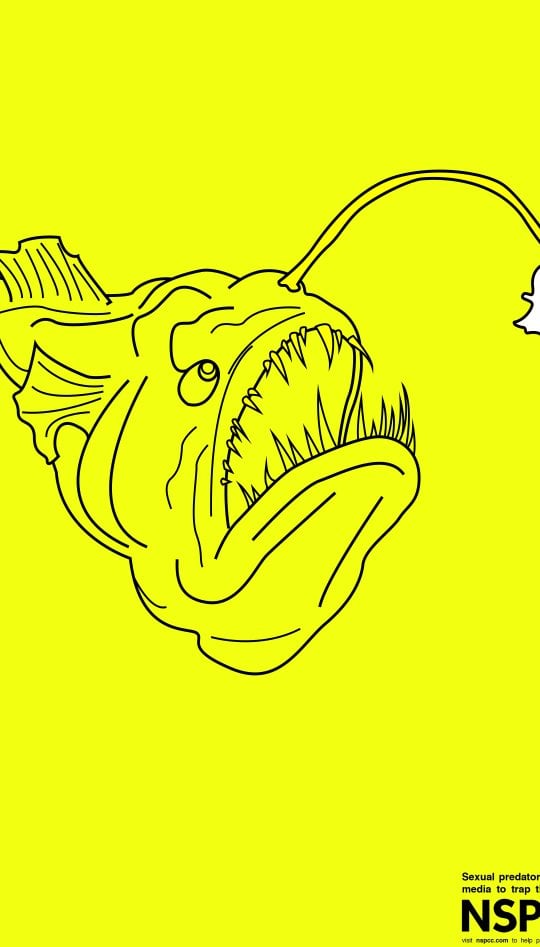

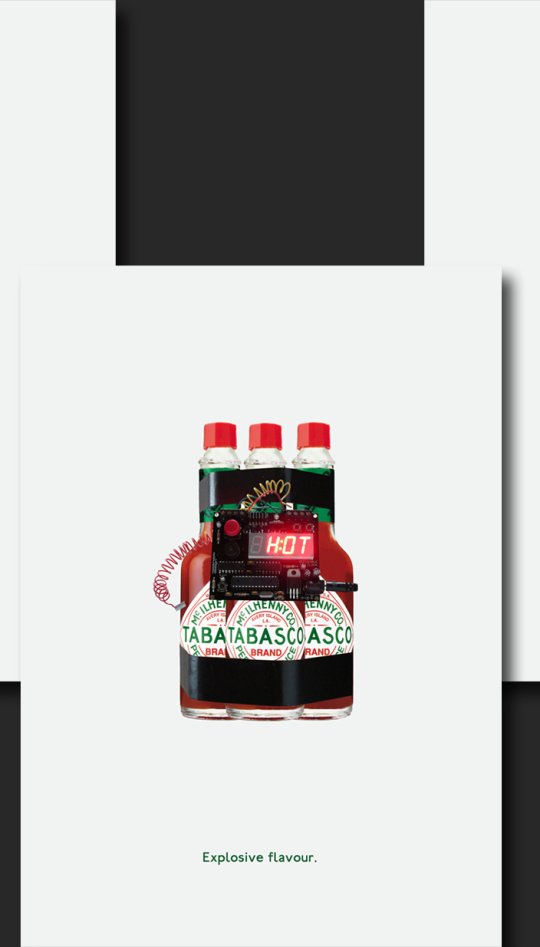
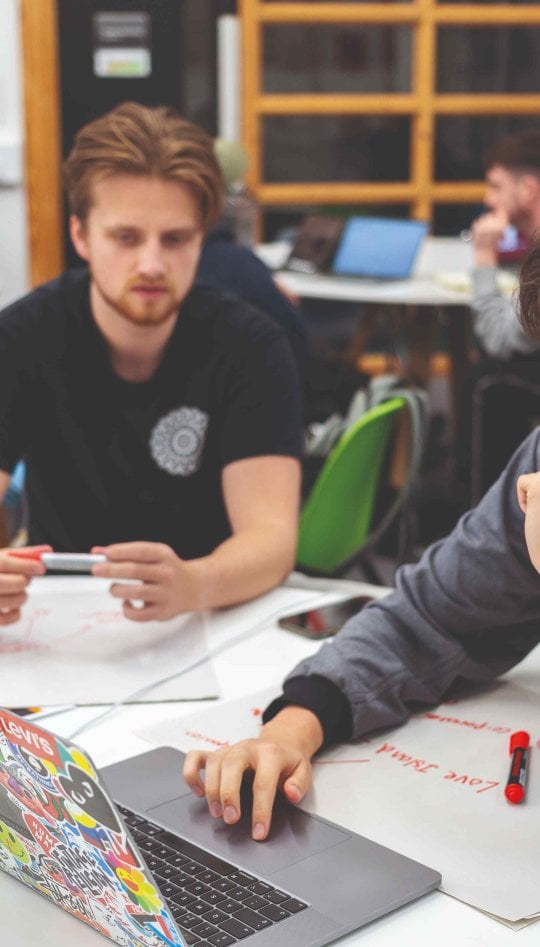
Creative Advertising BA(Hons)
Turn your ideas into powerful advertising campaigns.
Course overview
This Chartered Institute of Marketing (CIM) accredited course will help you become an imaginative and media-savvy advertising professional. Blending theory with hands-on learning, on this course you’ll graduate with a standout portfolio to showcase your ideas and strategic thinking across advertising, brand strategy and campaign delivery.
Learning in a studio environment that mirrors real industry practice, you’ll plan and develop creative advertising campaigns in response to industry-aligned briefs for brands, which have previously included Peloton, Starbucks and Seasalt.
In a rapidly evolving industry, staying ahead of the curve is essential. You’ll build core skills in areas such as digital storytelling, art direction and creative problem solving, while exploring behavioural research and gaining a thorough understanding of the contemporary advertising landscape and your place within it.
Whether you’ve got ambitions to be an art director or creative strategist, this dynamic course will give you the practical skills, resilience and industry awareness required to not only turn advertising into a successful career, but to help shape its future.
Why study this course at Falmouth?
- Work on industry-aligned briefs and become an expert in pitching your ideas, just like you would to a client.
- Explore how generative AI is affecting the strategic choices made in advertising and media campaigns, how to harness its potential and avoid its pitfalls.
- Learn to use behavioural science and psychology to design creative campaigns that drive social change.
- Prepare for your future career by collaborating in industry-simulated environments with students from other courses, and with support from the university's Employability team.
- Have the chance to interact with guest speakers and industry professionals, laying the foundations for your future professional network. Students have previously worked with global agencies including Sky Creative, Ogilvy London, McCann Central, Accenture Song, Iris Worldwide, and We are Social.
- Have the opportunity to showcase your work at industry awards like D&AD New Blood in London and the South West Design + Digital Student Awards in Bristol.
Creative Advertising BA(Hons) is also accredited by the leading professional marketing body for marketers; The Chartered Institute of Marketing (CIM). This means students who successfully complete the full undergraduate degree with a minimum of a 2:2 are eligible for exemptions against CIM qualifications.
Accredited Degree students have the opportunity to complete the qualifications whilst studying or following graduation.
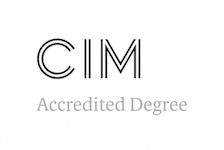
Course details
On this Creative Advertising degree, you'll have the opportunity to gain a BA(Hons) degree over three years or the option to study Creative Advertising BA(Hons) with Integrated Foundation Year and/or a placement year.
Through this career-focused Creative Advertising degree, we'll help you become an imaginative, change-making and future-focused advertising professional.
You’ll learn to generate and pitch innovative ideas for a range of channels including social media and other digital platforms. You’ll learn how to utilise emerging technologies in the creative process, such as using AI programmes like ChatGPT and Midjourney for idea generation, pitching and creating mock-ups.
You’ll also explore the magic of radical creativity and storytelling – the kind of human imagination that AI can’t replace.


- Bose Donald Trump poster by Gabby Cork & Aaron Leong
- #HaveaBreak - Kit Kat Covid poster by Jess Kielstra and Nina Forbes Turner
Modules
In your first year, you’ll be introduced to the fundamentals of advertising; exploring the steps involved when developing an advertising campaign and building a set of core skills as a professional foundation. Through workshops, tutorials and studio-based activities, you’ll build skills in art direction, copywriting, planning, pitching, and creative problem solving. You’ll also look at how research and insights underpin impactful campaigns, as well as the opportunities and ethical challenges posed by AI.
Modules
Writing Studio
This module is all about understanding the mechanics of impactful writing. Collaborating with students from across the School of Communication, you will examine how language shapes the experiences of audiences across different platforms.
Then, through practical tasks and workshops, you will develop tools and techniques that will build your confidence in writing with clarity, empathy, and purpose, helping you to craft engaging and persuasive stories for a wide range of different channels and contexts – from news and social media to websites and apps.
Creative Problem Solving
Commercial businesses and non-profit organisations need solutions for all kinds of problems and challenges - from improving everyday products and services to dealing with the impact of new technologies, the climate emergency, diversity and social justice.
During this module you will gain hands-on experience of creative problem-solving tools and techniques, learning how to collect information, discover insights, define problems and generate ideas to address problems in innovative ways.
Design and Art Direction
What techniques and styles are used in the creation of ads? In this module you will get to grips with interpreting creative briefs, learning how to experiment with typography and layout to achieve different objectives.
Through workshops and tutorials, you'll put these visual communications principles into practice, creating visual artwork in response to briefs and levelling up the standard of your work using Adobe software.
Adland
The evolution and development of advertising is significant to aspiring creative advertising practitioners; you’ll explore its historical roots to its fast-paced digital evolution.
Through a series of lectures, you will be immersed in the development of the industry throughout the 20th and 21st centuries, exploring the major concepts, people and campaigns that have shaped today's adland.
Agency Life
Whether it’s a big budget TV ad or an eye-catching social media campaign, brilliant outcomes require collaboration between art directors, copywriters, strategists, producers and more – plus, clients willing to part with their budgets.
Through a series of practical workshops, you will learn about the structure and workings of agencies; how long-term professional success relies on being able to reflect on your own practice, manage interpersonal relationships, undertake interdisciplinary collaboration and communicate effectively with both colleagues and clients.
Strategy in the Age of AI
This module teaches the core principles of strategic thinking for marketing communications, while firmly questioning the hype around AI. We position strategy as a human practice rooted in curiosity, cultural insight, and responsibility to people and planet. You will strengthen your strategic thinking by exploring how careful use of AI can support rather than replace human decision-making. You will also sharpen your judgement by studying how bias in AI can affect judgement and narrow creative possibilities.
This year is all about starting to define your own creative approach. Applying the skills you’ve already learned, you’ll progress beyond ad creation to multimedia, multichannel campaigns. You’ll take a deeper dive into the inner workings of brands and develop important planning and research skills like data collection and analysis.
You’ll develop advanced knowledge of behavioural science and psychology and how they drive social change. Responding to an industry-aligned brief, you’ll have the opportunity to pitch your ideas and potentially see your campaign idea go into production.
In preparation for your future career, you’ll get to grips with the inner workings of the advertising industry. You’ll also hone your teamworking skills and deploy your visual and written skills for different media, as well as reflect on the implications and impact of new media.
Modules
Social Media and Digital Cultures
Social media and digital platforms shape culture, identity, and communication. In this module, you'll learn to leverage each platform's unique features and possibilities to support your campaign objectives. Through lectures and case studies, you will examine how platforms influence everyday life, creative expression, and public debate, focusing on issues of algorithmic power, online communities and digital activism.
Working both individually and in groups, you will be challenged to design digital-first tactics or campaigns, building a portfolio that demonstrates your ability to connect cultural insight with strategic platform use. Adobe sessions will help you prototype your ideas visually, while guest talks and lectures will explore how social and emerging media are reshaping the industry.
Creating Brands
This module explores the role of brands in business and society, introducing their key components — from values, positioning, and personality to tone of voice and visual identity.
You will develop the practical brand design and production skills that bring brands to life: branding tools, methods, and frameworks to identify cultural tensions and opportunities, and strategies for compelling brand-building.
Alongside understanding how brands create value for businesses, you will discover how brands support innovation and drive change by challenging industry norms and engaging with social, environmental, and ethical issues.
Behaviour Change for Good
Understanding human behaviour is crucial in the world of advertising. In this module, you will delve into psychology and behavioural research, learning how to gain insights, and using behaviour change frameworks to inform your ideas for tackling important social and environmental issues.
Through a combination of lectures, practical workshops and tutorials, you will explore different research methods such as focus groups, interviews and observation to gain insights that can be used to inform a strategy or communication design intervention -- while also examining the moral and ethical considerations relating to behavioural research and the use of psychological techniques in communication and design.
Campaigns
How do global campaigns connect across markets and major channels? In this module, you will be introduced to the nuts and bolts of brand campaigns, learning about the unique features of different types of markets and services.
Responding to industry-aligned briefs, you'll collaborate with your peers to put the tools and tactics you've learned into practice to generate a portfolio of brand campaigns.
Work Futures
Digital media and creative industries are changing fast. In this module you will explore the contemporary creative industries and develop the skills and knowledge to shape them.
Through a series of guest speakers from our network of alumni and professional connections, workshops and seminars, you will build a toolkit for working life. Reflecting on pressing issues such as the gender pay gap, racism, socioeconomic inequality, burnout, remote working, and the role of AI and digital platforms shaping jobs, you will prepare to make choices that align with both your ambitions and the realities of creative work today.
You’ll also explore the importance of creating a personal brand and professional network reflecting on your own position and values.
You can choose to take an optional professional placement after your second year on a three-year programme, or after your third year if you’re studying for a degree with an Integrated Foundation Year.
You’ll be responsible for finding your own placement, with support from the Employability Team. Most placement opportunities for marketing and marketing communications are based in cities like London, Bristol, Bath, Manchester, Birmingham and Cardiff. There is also a small but mighty network of advertising, marketing and PR agencies in Devon and Cornwall.
Choosing this option will enhance your industry experience and skills while studying.
How you’ll study during your professional placement
You’ll spend time working in a professional context, as part of a business or organisation. This can be in one role, or up to three, and must be for a minimum of 24 weeks.
You’ll develop in-demand workplace skills, deepen your insight into industry and grow your network of contacts, all of which could help you get ahead in your career after graduation.
Throughout this year, you’ll develop a portfolio of work that includes critical self-reflection on what has been learned from the experience. You’ll be required to evidence your experiences, the skills you’ve learned and your professional growth.
Your final year is all about creating a standout portfolio that reflects your creative passions and professional aspirations. Underpinned by thorough research and critical thinking, you’ll produce campaign plans, pitches and digital content ready to launch your career.
Supported by tutors, you’ll tackle industry-aligned briefs and enter global competitions which might include D&AD New Blood in London & Southwest Design + Digital Student Awards in Bristol.
Modules
Major Project - Development
You’ll research, plan and develop a self-initiated final year project based on a brand or topic of your choice.
Demonstrating engagement with contemporary industry trends, debates and conversations, you will conduct a combination of secondary and primary research to identify findings or insights that can be used to inform your creative practice.
Through masterclasses, seminars and workshops, you will study research methods that are relevant to your discipline and chosen theme. With formative feedback from your project supervisors throughout, you will learn to shape your ideas and research findings into a clear and focused proposal of work.
Advanced Campaigns
Simulating the pace of a real creative department in an advertising agency, this module challenges you create a series of campaigns in response to industry-aligned briefs which have previously included clients like Greenpeace, Trainline, Adidas and Walkers.
You will develop your skills and knowledge through group discussion and a range of practical workshops: you could either be researching a brand background with your team, interpreting market research, writing a creative brief, brainstorming early ideas or practising your client pitch.
With the help of dedicated Adobe software sessions, you will learn to edit videos, record sound, design posters, or create interactive mock-ups such as landing pages for brands or mobile apps – and gain in-depth feedback from tutors on your work.
Major Project – Showcase
Placing your critical thinking and creative practice centre stage, you will create a thoroughly researched major project that establishes you as an expert in a chosen theme or sector.
Through 1-to-1 sessions with your tutor, you will define and plan the appropriate project outcomes which will demonstrate how you have interpreted your research creatively.
With the help of academic support sessions, you will also produce an accompanying written critical evaluation or rationale alongside your practical outcomes and prepare your work for public showcase whether in-person or online.
Industry Portfolio
This module will enable you to develop a unique graduate portfolio demonstrating your experience, projects and skills to potential employers in an engaging, compelling, and portable format.
You may work on industry-recognised competition briefs such as CIM Pitch, Creative Conscience, D&AD New Blood and AKQA Future Lions.
Why study an Integrated Foundation Year route?
If you’re taking on a new subject that you haven’t studied in depth before, have been out of education for a while or have a non-standard educational background then an Integrated Foundation Year degree may be the right choice for you. It is a four-year degree with an Integrated Foundation Year to start, which allows you to explore the primary elements of your subject before progressing on to the remaining three years of the BA(Hons) degree.
What you'll study in your Foundation year
If you choose this pathway, you'll study five core modules in your Foundation year. These are all designed to help you explore the foundational elements of your subject. You'll gain relevant technical skills, learn to experiment and take risks, develop an understanding of professional practice, have opportunities to work across disciplines and collaborate with other students on live project briefs.
Modules
Explore
You'll begin your foundation year by working collaboratively with others to explore themes of the future. You'll take risks, experiment through play and be supported to break through barriers.
Technique
You'll take subject-specific workshops and develop essential technical and practical skills in your area of study. You'll also enhance your analytical and organisational abilities.
Apply
You'll work with your peer group to think beyond discipline by addressing a societal or global issue. You'll then showcase your work to your peers and deliver and accompanying evaluation of your process.
Industry
You'll enhance your creative and practical skills in your subject specialism by responding to typical industry briefs, underpinned by focused research and experiments. You'll also gain industry insights through guest lectures and workshops.
Launch
You'll develop your unique identity in your specialism through the production of a self-initiated body of work. Your final project will be the bridge to your next year, fully supported by evaluative reviews and critical analysis of the work you have created.
After the Foundation year, you progress into Year One of the full three-year degree, equipped with a deeper knowledge of your subject, a clear understanding of your strengths, and develop a practical and technical skillset and the confidence to excel in your chosen subject.
If you apply for and enrol onto a degree with an Integrated Foundation Year, you’ll have the option to switch onto a five-year version including a placement year. That means you’ll complete the first three years of your course before completing a placement in industry in your fourth year and returning to Falmouth for the fifth year of your programme.
As part of our process of continuous improvement, we routinely review course content to ensure that all our students benefit from a high-quality and rewarding academic experience. As such, there may be some changes made to your course which are not immediately reflected in the content displayed on our website. During your course, module content may be updated or optional modules withdrawn in order to maintain the best academic experience. Any students affected will be informed of any changes directly.
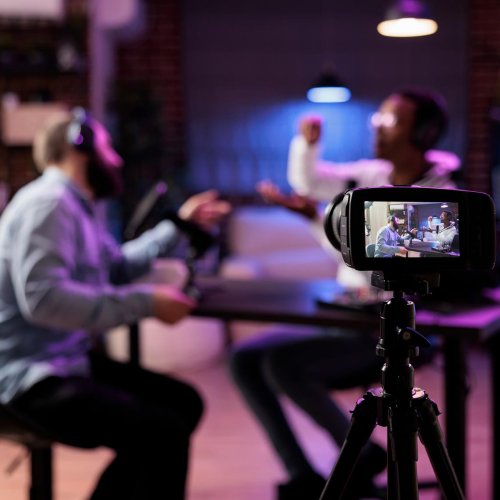
Discover the differences between our creative content, marketing and media courses
If you’re an aspiring storyteller with a keen interest in digital platforms, then you may be thinking about the different ways to forge a career in the fast-paced media industry. Here at Falmouth, our multidisciplinary School of Communication offers a variety of specialist degrees across media, content creation, marketing and journalism – all centred around the craft of impactful digital storytelling.
Find out more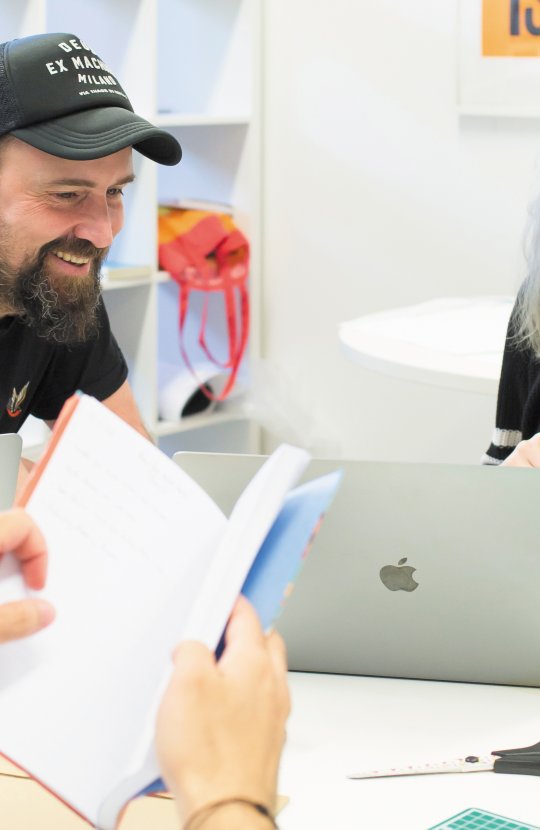
Virtual tour
Discover where you’ll spend your time as a student with our 360° tour, showcasing our facilities, accommodation, town and scenery.
Facilities
- Dedicated studio and exhibition space
- Falmouth Stores providing loans to digital SLR cameras and other portable audiovisual equipment.
- Digital labs, lecture theatres and seminar rooms.
- Digital Print Centre equipped with large format printers and risographs
- Photo Room equipped with overhead static camera tables, curved product photography tables, photographic lighting and backdrops as well as iMacs for camera tethering.
- Library housing 140,000 books, 17,000 DVDs/videos and over 400 journal titles.
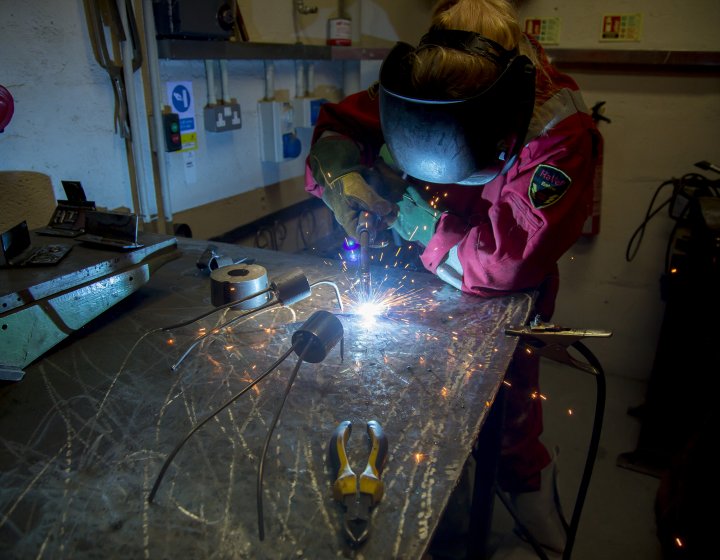
Art & Design Facilities
Primarily located at the Falmouth Campus in a subtropical garden, our studios and workshop facilitie...
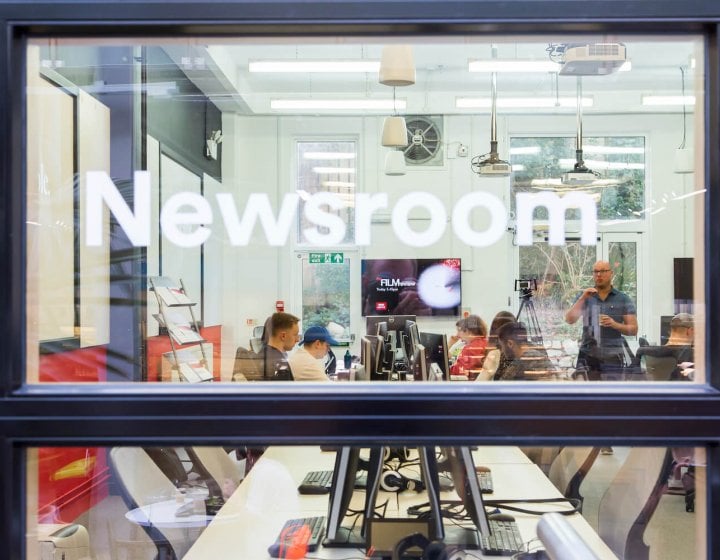
Media Equipment and Facilities
Our industry-level facilities offer everything you need to practice and produce animation, film, TV,...
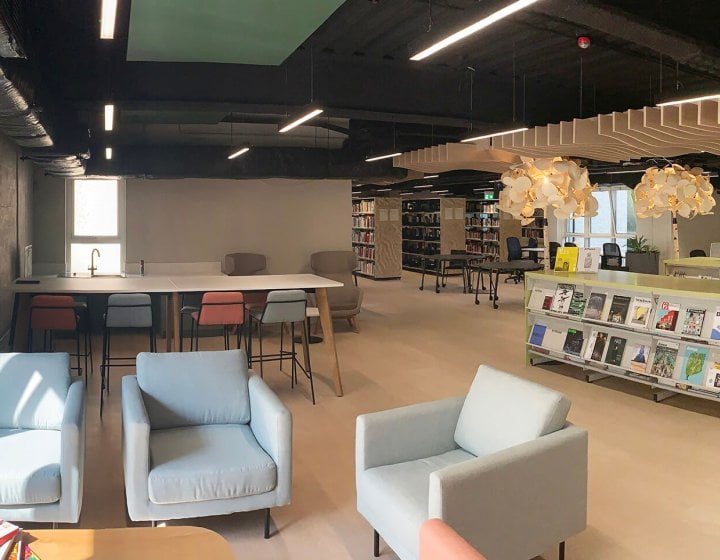
Library Facilities
Offering extensive collections, our two libraries provide a wealth of digital resources, magazines, ...

Sports Centre
Our Sports Centre, on Penryn Campus, includes a spacious gym with up to 90 of the latest, new statio...
How you'll learn & be assessed
This practice-based course mirrors life in a creative agency. You'll learn through crits, individual tutorials, peer group discussions, and technical workshops, while leading your own efforts in pitches and presentations. You may also benefit from guest lectures or take advantage of optional study trips.
A typical week begins with introductory workshops to creative tools and frameworks, then you will be given guided briefs to apply these tools. Directed practice and supervised studio sessions will be self-led; this will include working on your own practice, developing your projects, research and critical reflection.
At Falmouth, we use a 'digitally enhanced learning & teaching' approach. Your experience will always be predominantly in-person, including seminars, tutorials and studio teaching, with some, more targeted elements, being online either live (synchronous) or pre-recorded (asynchronous). You can read more here.
Assessment is based on a combination of:
- 100% of your assessment will be coursework.
- Practice-based modules will be assessed on the presentation of visual work, including sketchbooks to show process
- Theory-based modules will be assessed on a mix of written reports or illustrated essays
- In the final year, you’ll be assessed on your final year project and your portfolio - culminating in an exhibition of your final-year work
You will receive feedback in a range of formats:
- In-class discussion with tutors about work-in-progress
- One-to-one tutorials with your module tutors
- Informal group presentations
- Group discussion and crits to get peer feedback on ideas
- Academic support and feedback on written assignments are available in tutorials or with academic skills tutors
- Asynchronous feedback offered through emails or ‘soft’ deadlines of practical work
- Opportunities to get feedback from visiting guest speakers from industry or portfolio crits
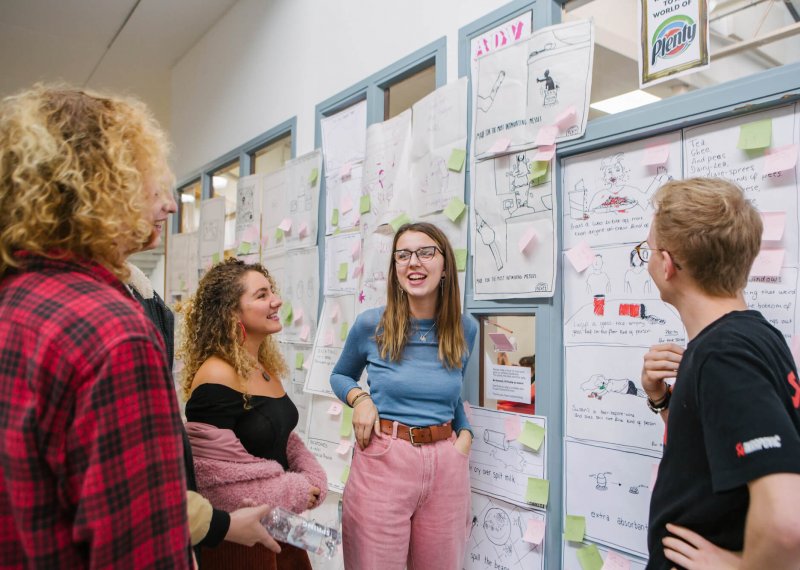
" I saw this ad course at Falmouth Uni, and it seemed like a bit of me. I learned some great things and met some great people. "
Stories from our community
Explore student projects, graduate successes, staff news and industry insights
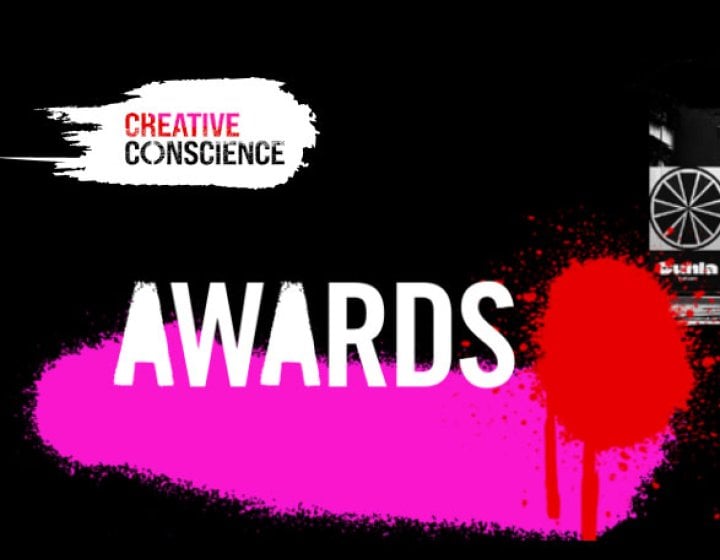
Students win big at Creative Conscience Awards 2025
07 October 2025
Eight students have been awarded the top awards at this year’s Creative Conscience Awards, with th...
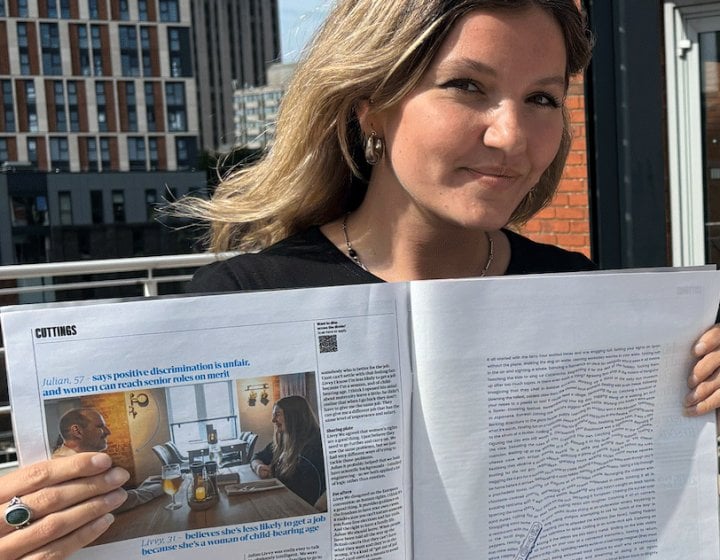
Meet the Creative Advertising alumnus whose work is displayed across London Underground
02 September 2025
“Falmouth really isn’t like most universities, and that isn’t because of the beaches,” says ...

Meet the Creative Advertising alumnus whose work is displayed across London Underground
02 September 2025
“Falmouth really isn’t like most universities, and that isn’t because of the beaches,” says ...
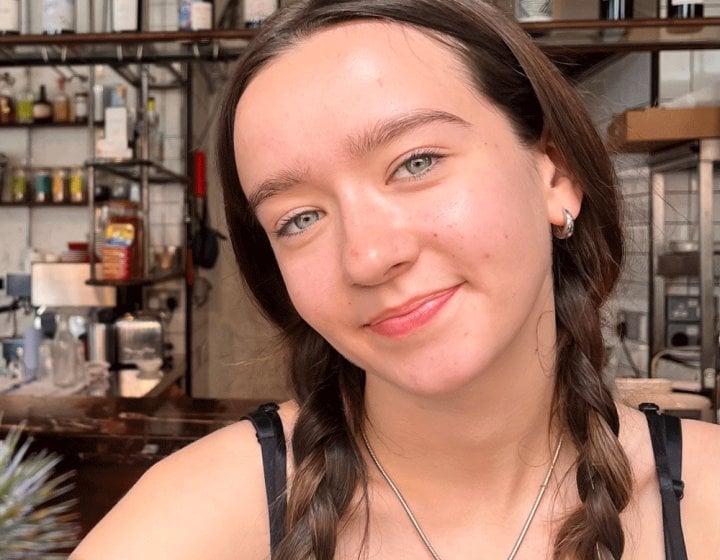
Creative Advertising student gains industry insights at global advertising agency
28 August 2025
Second year Creative Advertising BA student Amelia Belam is now finishing her internship with advert...
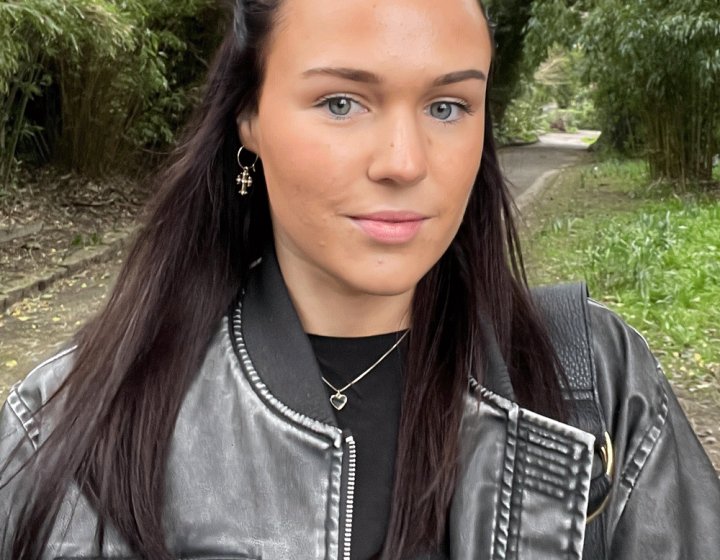
Meet the Creative Advertising graduate who won a D&AD Portfolio Award
22 July 2025
July has been a big month for Rosie Whyte; she’s graduated with a Creative Advertising BA(Hons) fr...
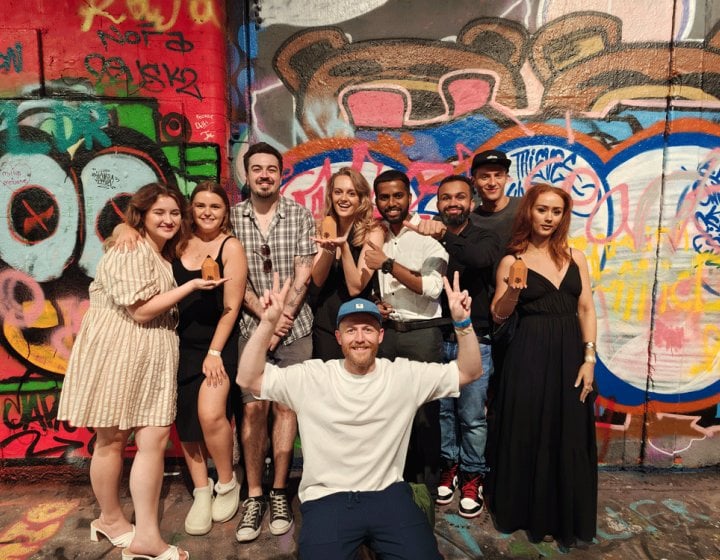
Falmouth students and alumni win four Wood Pencils at D&AD Awards 2025
16 July 2025
The prestigious D&AD Awards, held in early July, was judged by creative leaders and innovators to ce...
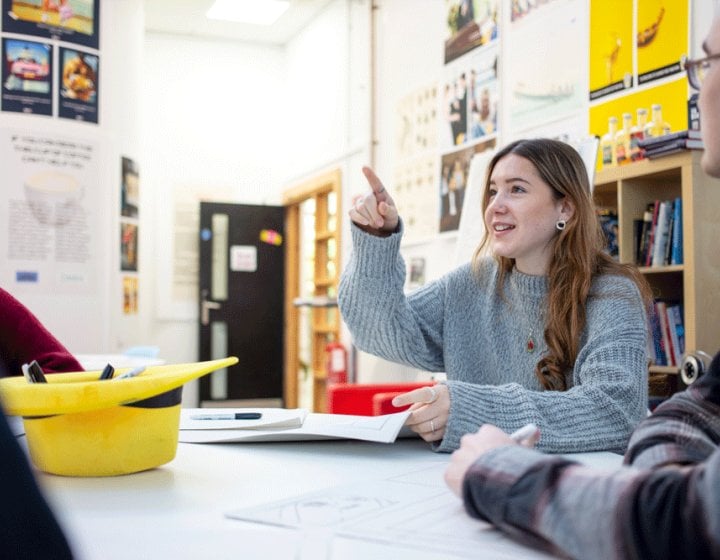
Students work with NHS to create vaccination advertising campaign
26 March 2025
Staff and students on Falmouth’s Creative Advertising BA(Hons) and Marketing Communications BA(Hon...

Students win four Creative Conscience awards
07 October 2024
Four student projects have scooped award wins in this year's Creative Conscience awards
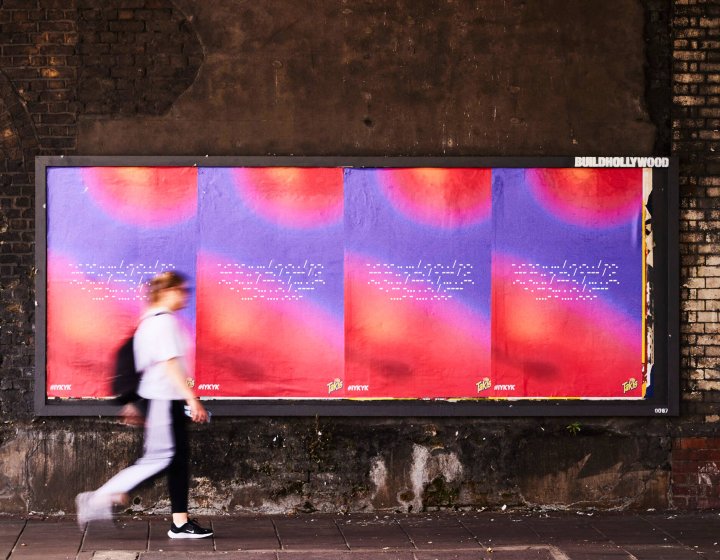
Creative Advertising duo score big with Gen Z ad campaign
18 July 2024
Huge congratulations are in order for two Creative Advertising BA alumni – Hugh Kendall and George...
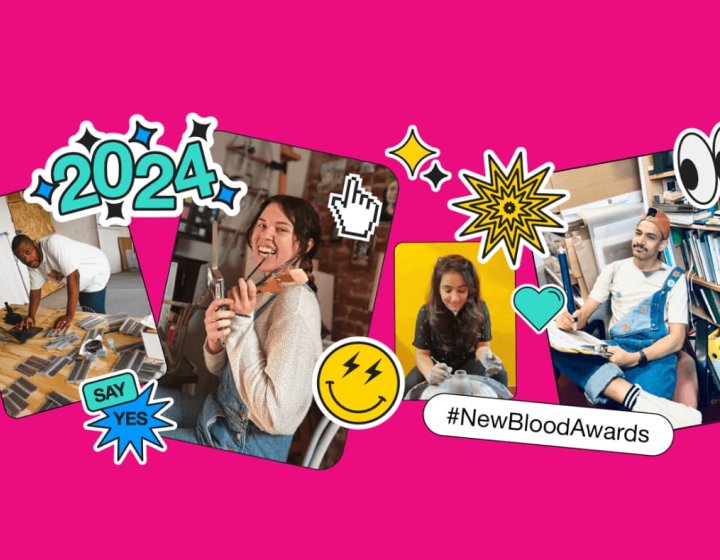
Students scoop six Pencils at D&AD Awards 2024
05 July 2024
Six student projects have scooped Pencils in this year’s D&AD New Blood Awards

A sweet success: how a 3-week placement led to a job offer for one Creative Advertising student
01 July 2024
Securing a work experience placement in today's competitive job market requires creativity and a pro...
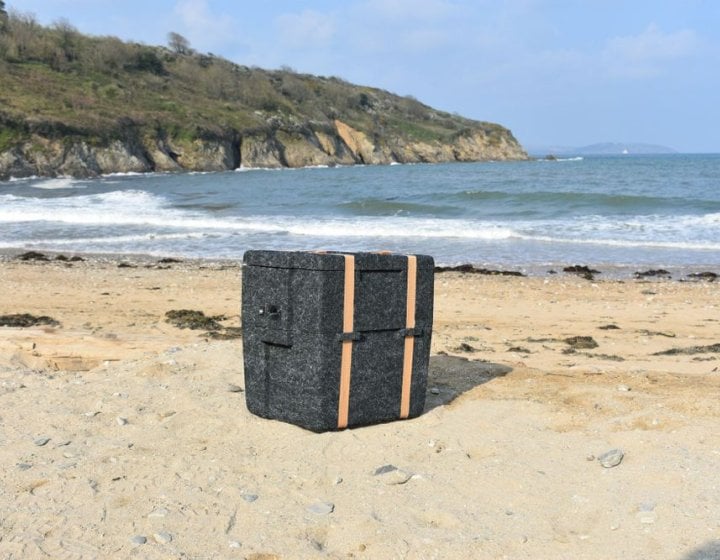
Falmouth University students and alumni win big at Creative Conscience Awards 2023
11 October 2023
The awards cement our reputation for championing ethical and sustainable practices.
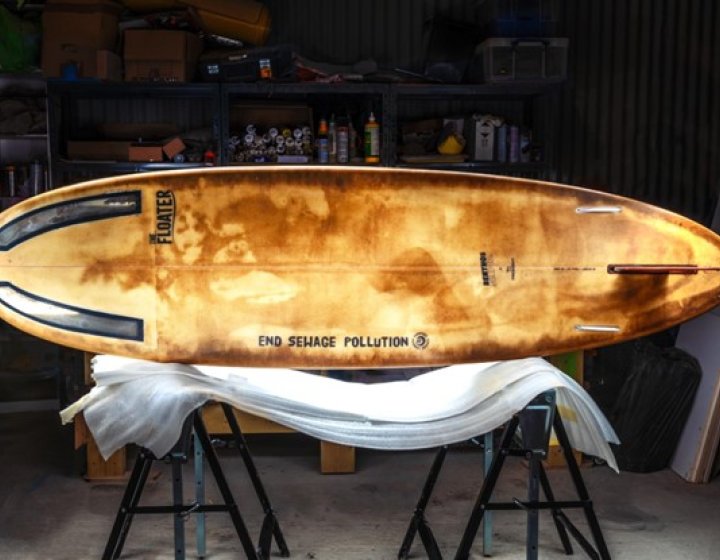
How a crap campaign helped Surfers Against Sewage tackle pollution profiteering
18 August 2023
Head of Advertising Dr Cui Su speaks to Creative Advertising graduate Jake Smith about his recent ca...
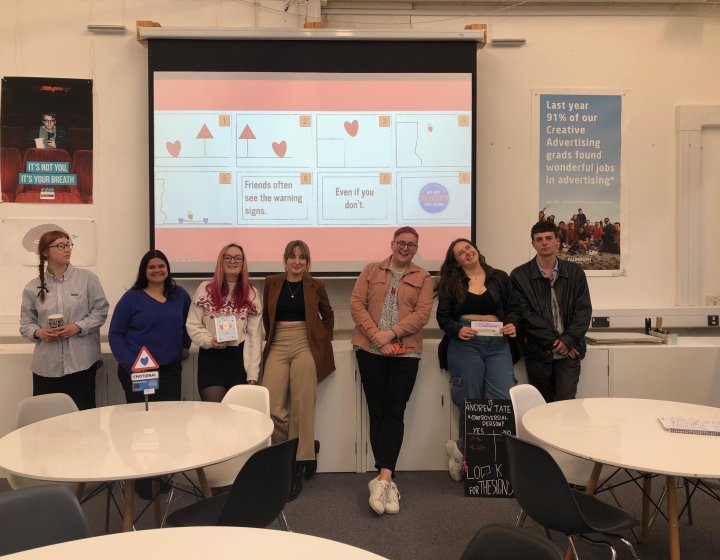
Creative Advertising students tackle taboos in Healthy Relationships campaign
20 July 2023
Students produce hard-hitting awareness campaign encouraging healthy relationships.

Investigating 'rainbow washing' in advertising during Pride
30 May 2023
Creative advertising student investigates the history of 'rainbow washing'.

Investigating 'rainbow washing' in advertising during Pride
30 May 2023
Creative advertising student investigates the history of 'rainbow washing'.

What is Creative Advertising?
22 May 2023
With today’s ad space oversaturated and fiercely competitive, how do brands cut above the noise an...

What is Creative Advertising?
22 May 2023
With today’s ad space oversaturated and fiercely competitive, how do brands cut above the noise an...
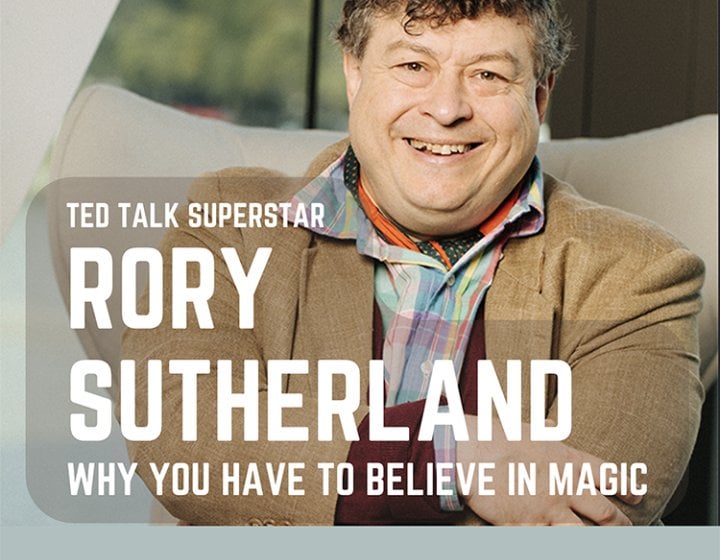
Ogilvy’s Rory Sutherland talks behavioural economics at Falmouth University
07 February 2023
Advertising executive and behavioural economist, Rory Sutherland delivered a talk on the intersectio...
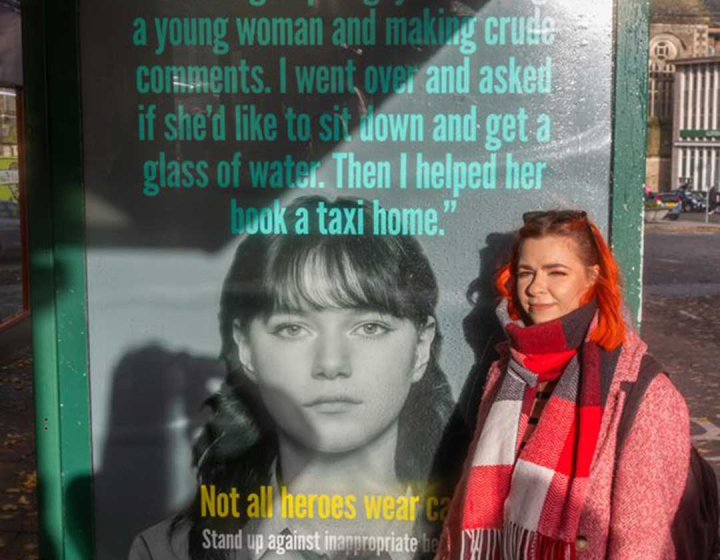
Creative Advertising students design public engagement campaigns with Safer Cornwall
21 November 2022
Students on BA and MA Creative Advertising have produced campaign concepts to prevent violence again...
See a selection of digital publications and portfolio work from our Creative Advertising students.
Staff
Our staff have worked for globally recognised agencies and companies like We Are Social, Apple, Wunderman Thompson, AMV BBDO, BBH and Mindshare. We also have industry partnerships with agencies including Iris Worldwide and Havas London.
Some members of staff only teach on specific modules, and your course might not feature every staff member who teaches on the course.
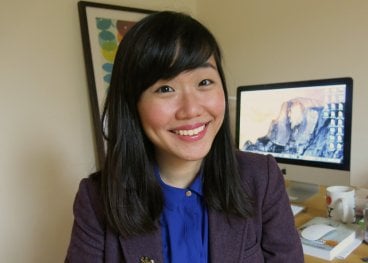
Dr Cui Su
Head of Advertising
After her boss at Young & Rubicam told her 'you're the best account handler I've ever had but go...
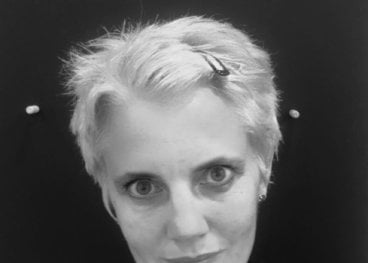
Lucy Cokes
Senior Lecturer, Creative Advertising
Lucy is a Senior Lecturer at Falmouth University, School of Communications. She has been working in ...

Joseph Payne
Senior Technician, Software Skills Development
I joined Falmouth University in 2014 and worked primarily as a freelance digital designer before tha...

Anthony Swede
Course Leader, MA Creative Advertising
With over twenty-five years' experience in advertising, across numerous disciplines and categories, ...
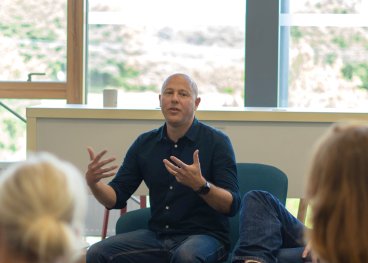
Dr James Branch
Senior Lecturer, Design Strategy
James is a lecturer and researcher specialising in design education. He holds a doctorate in User Ex...

Joel Ferguson
Course Leader, Creative Advertising
After studying multimedia design and branding, Joel began his career by starting the agency, OTA Dur...

Got a question about this course?
If you want to know more about the course structure, our application requirements or what our graduates have gone on to achieve, our friendly course team is here to help.
Chat to JamesCareers
Our graduates have worked as:
- Consultant at Ogilvy London
- Executive Creative Director at 4Creative
- Assistant Producer at BBH London
- Creative Team at FCB London
- Senior Creative at BBC Creative
- Copywriter at Saatchi & Saatchi, Singapore
As a Creative Advertising graduate, you could work in the following roles:
- Art Director
- Copywriter
- Digital Designer
- Content Creator
- Social Media Executive
- PR executive
- Strategist
- Producer
- Account Executive
- Consultant
- Marketing Executive
What can you do with a marketing degree?
A marketing degree can be a springboard for a career in a range of industries, such as advertising, PR, consultancy and digital marketing.
How to apply
Ready to apply for 2026?
You can apply for our undergraduate degrees via UCAS. You'll need our university UCAS code (F33) as well as your course code (which you'll find on your course page) for your application.
Applying as an international student?
There are a number of different ways to apply to study at Falmouth as an international student. Find out how you can become part of our creative community.
| Course route | UCAS code |
|---|---|
| Creative Advertising BA(Hons) three year degree | N561 |
| Creative Advertising BA(Hons) with Integrated Foundation Year | FY09 |
| Creative Advertising BA(Hons) with professional placement | PY44 |

Application advice & interview information
Go to ToolkitFor starting your studies in 2026
UK applications: 14 January 2026 (for equal consideration)
Applications after the 14 January will be considered on a first-come, first-served as long as there are places available. Apply for this course now.
For starting your studies in 2027
UK applications: 13 January 2027 (for equal consideration)
International fee payers
International fee payers can apply throughout the year. But we recommend applying as early as possible, to make time for visa and travel arrangements.
We consider all applications on their own individual merit and potential.
Our diverse community is creative, innovative and entrepreneurial. We recognise that these qualities aren’t always shown in academic grades alone. That’s why, while many of our applicants achieve high academic grades, we also welcome those who can demonstrate their potential through an exceptional portfolio or performance.
We welcome applications from all subject backgrounds, whether you’ve specialised in STEM, the arts or humanities. Find out more about our Entry Requirements here.
Course routes & entry requirements
BA/BSc(Hons) three year degree: minimum 64 UCAS Tariff points
BA/BSc(Hons) four year degree with professional placement: minimum 64 UCAS Tariff points
BA/BSc(Hons) four year degree with Integrated Foundation Year: minimum 32 UCAS Tariff points
At Falmouth, we'll consider the equivalency of your specific qualifications against our entry requirements and support you through your application journey.
View our International Entry Requirements
Language requirements
For applicants whose first language is English we require you to have or be working towards GCSE English Language Grade 4 (C), or equivalent.
If English is not your first language you will need to meet the same standard which is equivalent to the IELTS Academic 6.0 overall score, with at least 5.5 in Reading, Writing, Speaking and Listening. We accept a range of in country equivalencies and approved tests.
If you need a student visa to study in the UK, you may need to take a recognised language test. You can read our English Language Requirements for more information.
Fees, costs & funding
Tuition fees
| Annual tuition fee | Student |
|---|---|
| £9,535 per year | Full-time UK |
| £19,950 per year | Full-time EU/international |
| £1,907 per professional placement year | Full-time UK and EU/international |
| £5,760 per Integrated Foundation Year | Full-time UK |
| £19,950 per Integrated Foundation Year | Full-time EU/international |
| Annual tuition fee | Student |
|---|---|
| £9,535 per year | Full-time UK |
| £17,950 per year | Full-time EU/international |
| £1,905 per professional placement year | Full-time UK and EU/international |
| £5,760 per Integrated Foundation Year | Full-time UK |
| £17,950 per Integrated Foundation Year | Full-time EU/international |
Tuition fees for September 2027 will be confirmed in summer 2026.
Tuition fees are set annually and are subject to review each year. The University may therefore raise tuition fees in the second or subsequent years of a course, in line with inflation and/or the maximum permitted by law or Government policy. Students will be notified of any changes as soon as possible.
The figures above don't include accommodation and living costs
Typical course costs
- Recommended reading. Approx £25.
- Laptop for course duration. Approx £400 - £1500.
- Printing costs for degree exhibition. Approx £50 - £100.
Recurring annual costs
- Adobe Creative Suite. £16.24 per month.
Optional study trips
- First year London study trip. Approx £600.
- Final year study trip. Approx £600.
If you need to bring equipment or materials with you, these will be outlined in your Welcome Letter.
The figures above don't include accommodation and living costs
Equipment and costs
You will require a laptop for the course. Macs are preferred but a PC is fine. Costs range from about £400 to £1500. You will be using the Adobe Creative suite which as a Falmouth student, you will be able to access at a heavily discounted rate of £16.24 per month. You will also need a reliable broadband connection (if you are living in university accommodation you will have this). Some printing costs will be needed when setting up your degree exhibitions in the final year. This is likely to be £50-£100 depending on the nature of your work.
Study trips
All first-year students have a scheduled three-day study trip to London during which you will visit relevant companies. Costs will vary depending on your accommodation and travel preferences. As a guide, expect to pay about £600 for the whole trip, including food and socialising. In your final year, students may wish to participate in the three-day exhibition and festival event in London in July. Costs will vary depending on your accommodation and travel preferences. As a guide, expect to pay about £600 for the whole trip, including food and socialising.
Additional typical course costs for Integrated Foundation Year pathway
- £250 for materials
- A laptop/desktop computer
- Adobe Creative Suite
To engage in the digital learning activity, although you will be able to access IT suites on campus, you will benefit from a laptop to access the platforms and tools we use. Depending on your subject, you may need a specific type of computer. If you're unsure about what you might need, please contact our course advisors.
Laptop (essential)
You will require a laptop for the course. Macs are preferred but a PC is fine. Costs range from about £400 to £1500. You will be using the Adobe Creative suite which as a student, you will be able to access at a discounted rate. You will also need a reliable broadband connection (if you are living in university accommodation you will have this).
Smartphone
Even the most basic smartphone with a working camera will be sufficient for you to experiment with expressing yourself and developing your narrative storytelling to supplement the use of the bookable resources.
Hard Drive
Hard drives can be borrowed from our Stores however it’s often handy to have access to your own to store and backup your work. Reliability is critical so we would recommend brands such as G-Tech or Lacie with USB 3 connectivity and ideally a minimum disk speed of 7200rpm (approx. £100).
You will be expected to work in all sorts of locations and weather conditions. It is therefore highly recommended that you come fully prepared with the right sort of personal clothing to protect yourself from the elements and to meet risk assessment requirements. This will set you up well for industry work beyond graduation too.
This list is not exclusive, so please use it as a guide; you should be able to equip yourself for the outdoors for approximately £150 (some companies offer student discounts so be sure to check):
- Waterproof jacket
- Warm headgear
- Strong waterproof boots/shoes
- Gloves
- Waterproof trousers (working all day in wet jeans is particularly unpleasant!)
- Warm/thermal top (and bottoms for good measure!)
- Mobile phone for emergencies
Typical Costs
Typical course material costs:
- £150 - Recurring annual costs may include printing and stationary.
Study trips:
There are several IFY field trips, and you will need to allow for some costs for student contributions towards coach hire and exhibition entry. Total annual cost of day trips approximately £60.
If you want to attend the planned IFY week-long residential trip to London in the Spring of 2026 then you will need to plan for a £100 deposit payment shortly after arriving on the course, to secure a place, and to budget for a total trip cost of approx. £400 - to be paid in instalments.
Funding
For information about funding available, please visit our student funding pages.
Ask a student
What better way to find out about life at Falmouth University than by asking our current students?
From course details and academic support, to the social scene and settling in, our students are ready and available to answer any questions you might have. Simply set up your account, send them a question and they'll get back to you within 24 hours.
Similar courses
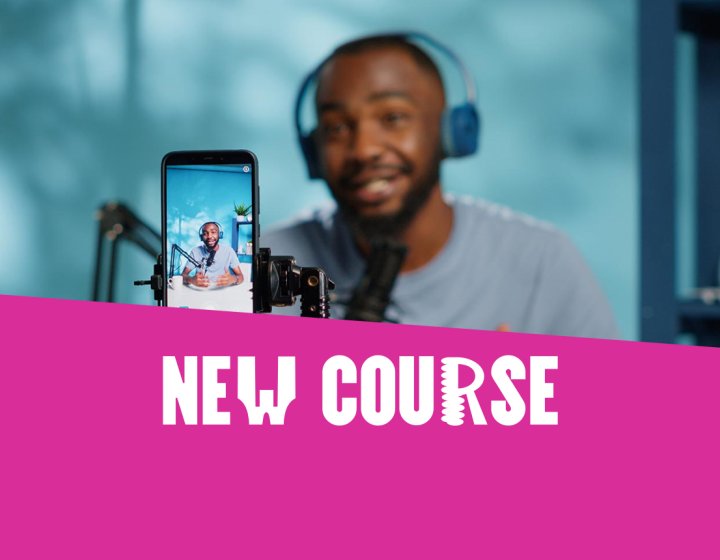
Content Creation BA(Hons)
Develop your creative, technical and analytical skills, so you can produce compelling content that c...
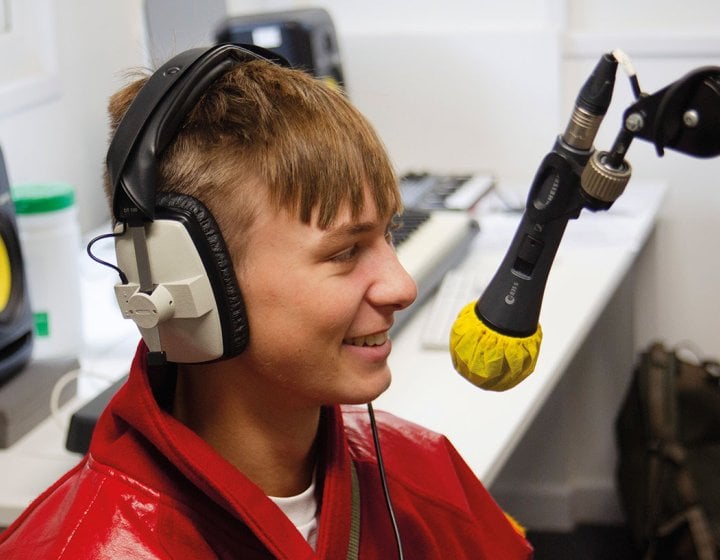
Media Production BA(Hons)
An exciting and market-driven fusion of filmmaking, advertising and journalism, this Media Productio...

Business & Marketing BSc(Hons) (Online)
Become a skilled, confident, ethical and future-ready business and marketing professional with this ...
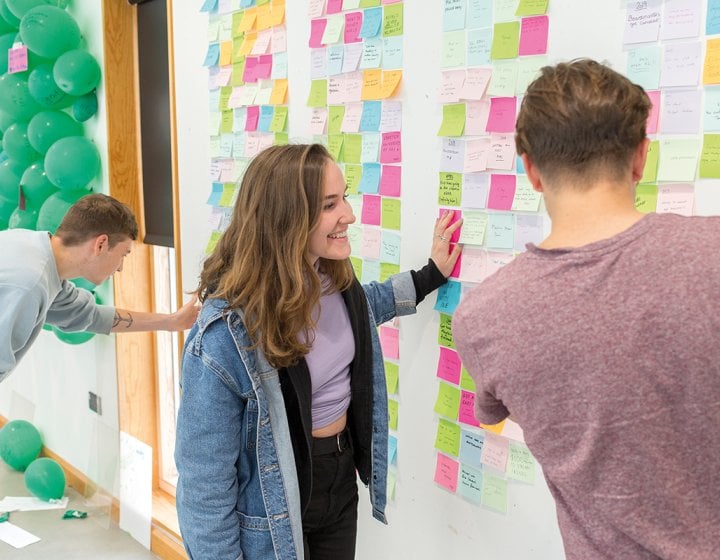
Marketing Communications BA(Hons)
Drive your ideas forward and engage with creative marketing practice on this Chartered Institute of ...

Work by Hannah Mittelstaedt
Commercial Photography BA(Hons)
From creating photographs and films for high-end advertising and marketing campaigns to producing vi...
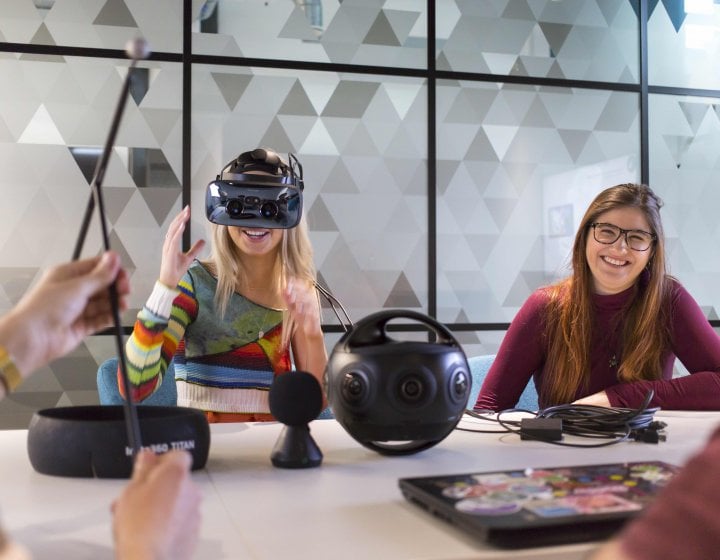
Business & Digital Marketing BSc(Hons)
Prepare yourself for a career in the fast-paced and ever-evolving world of business and digital mark...
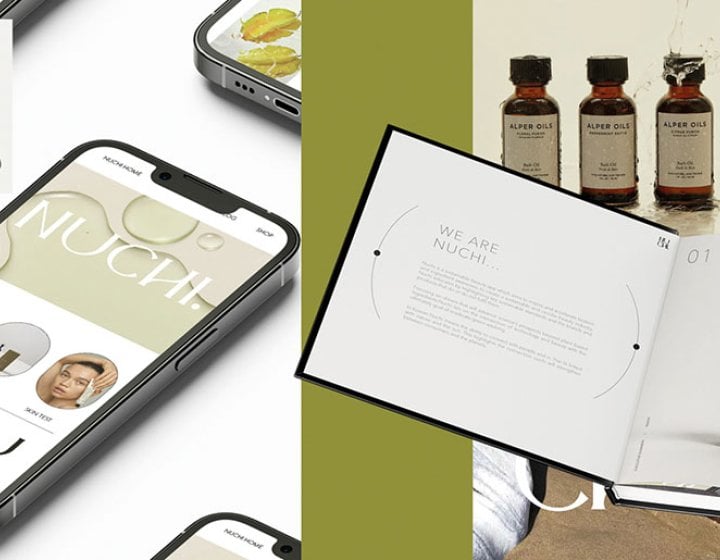
Fashion Marketing BA(Hons)
Blend your flair for communication and eye for fashion into a successful career as a fashion markete...
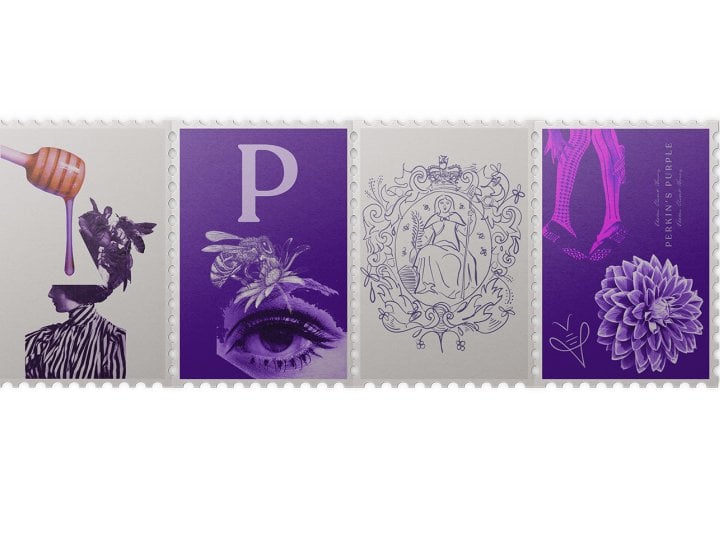
Graphic Design BA(Hons)
Graphic Design is one of the most versatile visual disciplines, embracing words and pictures, form a...
Open Days and events
From visiting campus to online application advice, get all the information you need about joining our creative community.
Find an event
